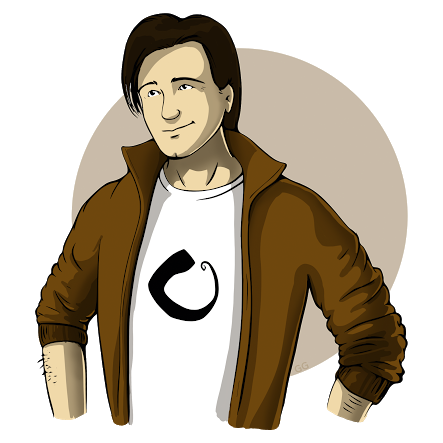
Here at Ridiculously Efficient, we've always been advocates for de-stressing techniques, such as yoga and meditation, to boost your focus and overall productivity. Christian Grobmeier is the author of The Zen Programmer, a book which outlines his journey to finding his zen, and how anyone can do the same. Going zen is about taking control of your own life, learning to say 'no' when necessary and learning that zen can be be practiced anywhere at any time. Grobmeier was kind enough to share his story with us, telling how what led him to finding his zen and the steps he had to take to do so.
When I was a kid, my friend gave me a book on meditation. I read it and thought it was nice, but my interest didn't last long. For me, meditation was some kind of mental training. Back then, I didn't want to achieve any other goals than becoming a rock star with my band.
However, I ended up becoming a software consultant. It turned out that I was much better with programming than with playing drums. With my new skill-set, I suddenly got a lot of friendly people around me:
* the project manager at work, who wanted me to stay longer and fix a problem * the guy next door, who had a great idea for a new smartphone app last night * friends I knew for ages, who urgently needed a website for their new businesses * and family members of whom you didn't hear from for years, until their PCs broke
I didn't know how to say "no". I worked. I gave my best. I was working hundreds of kilometers from home. When I returned on weekends I felt half dead. It went on and on. I thought: is that actually how life is? I didn't have fun at work and there was no life after work. One night I couldn't sleep. Whatever I did, I constantly heard my manager talk to me. Late at night, adrenaline was pumping my veins and my heart beat hard.
I stood up, opened the window and heard the early birds. Then I remembered the book my friend gave to me ages ago. I didn't remember it's contents, but I sat down to the floor and started meditation.
It felt like one poured water on my burning skin. After a while I realized I breathed. I heard the birds more clear. The manager was gone.
Since then I have been practicing Zen. First it meant to just sit down and meditate for only a couple of minutes. Later I meditated more and researched literature. I found out Zen wasn't dogmatic and easily applicable for people who don't want to adopt a religion. Actually I thought for a long time that Zen wasn't much more than a philosophical idea. Today I understand why it's called a religion. However it was helpful to practice without reconsidering religious beliefs.
After quite a while of reading books and meditating on my own, I decided that Zen practice was helping me so much, that I chose a "Zen way" which I wanted to follow. Along with the better known ways of martial arts, calligraphy or the tea way, I took the way of blowing the Shakuhachi, a bamboo flute.
Practicing Zen means to not expect anything. Things will change on their own. I always felt that practicing Zen helped me to make sense of the insane world of phone calls, deadlines and bug-fixing pressure. It reminds me to breath, to eat, and to sleep. That's why I am doing it.
Stay tuned for Part 2 of our interview with Christian Grobmeier, in which he tells us how going zen can help you have a better work-life balance while also boosting your productivity.

![Find Your Zen With Christian Grobmeier [Interview - Part 1]](/content/images/size/w1200/content/v1/56ad0eb962cd942d9e46f366/1454986520474-XMK6O5B2FMRH840B9O9D/christianfrobmaier.png)






